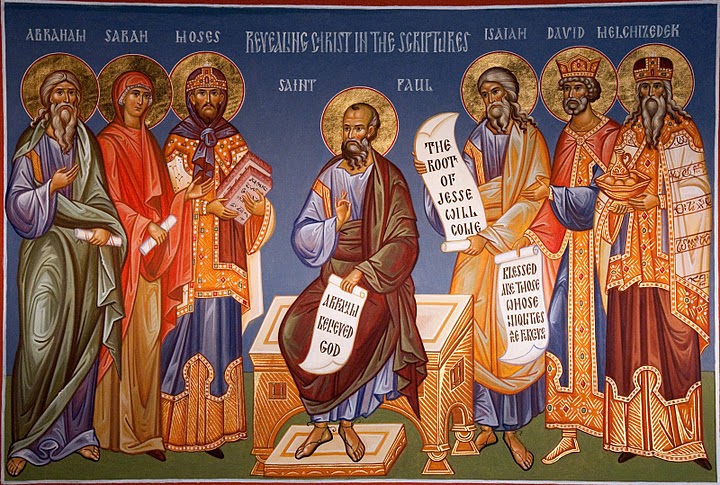The history of mankind is replete with remarkable individuals who have arisen at pivotal moments to impart divine wisdom. These individuals, often referred to as the Prophets of God, have consistently championed the cause of spiritual enlightenment, moral rectitude, and social harmony. Despite the profound truths they offer, a recurrent theme emerges: humanity’s propensity to reject and even vilify these divinely appointed messengers. This phenomenon invites scrutiny, leading to a deeper understanding of the factors underpinning such resistance to prophetic teachings.
At the crux of this rejection is the tension between innovation and tradition. Prophets often emerge during times when societal norms and religious practices have become rigid, entrenched in dogma and conformity. When an individual speaks of reforms or introduces concepts that deviate from established beliefs, they inevitably encounter resistance. This phenomenon can be understood through the lens of cognitive dissonance, wherein followers of a particular tradition may experience psychological discomfort when confronted with ideas that challenge their long-held convictions.
Moreover, the nature of the message conveyed by Prophets often includes profound and transformative truths that transcend societal norms. These teachings may advocate for unity, equity, and the dissolution of prejudice, challenging the status quo. Such calls for change can provoke fear among those who benefit from existing hierarchies. Consequently, the rejection of the Prophet becomes a defense mechanism, allowing individuals to safeguard their privilege and maintain the social order.
Another salient factor contributing to the rejection of Prophets is the intuition that their messages can be unsettling. The truths articulated by these Messengers frequently probe the depths of human conscience, laying bare the imperfections inherent in societal structures and individual behavior. As they shine a light on moral failings, the discomfort of self-reflection can provoke defensiveness rather than introspection. This reaction often manifests as hostility towards the Prophet, as communities rally to preserve their collective identity against perceived external threats.
Furthermore, the emotional responses elicited by Prophetic messages are complex. Prophets often embody ideals of moral superiority that may invoke feelings of inadequacy among their contemporaries. In the face of such luminaries, individuals may grapple with a sense of failing to live up to the lofty standards set forth. This reaction can engender resentment, prompting individuals to rebuff the Prophet’s teachings in an attempt to diminish their influence and alleviate their discomfort. Yet, paradoxically, the rejection of prophetic guidance can lead to a perpetuation of societal woes that the Prophets sought to remedy.
The historical record illustrates this cycle vividly. From Jesus Christ to Muhammad, figures throughout religious history frequently encountered skepticism and outright hostility. The crucifixion and persecution of these divine emissaries serve as testament to humanity’s tendency to stifle truth that feels inconvenient or threatening. Such patterns of rejection not only underscore a fundamental aspect of human nature but also highlight the often tumultuous interplay between divine instruction and human agency.
Continuing along this trajectory, it is vital to consider the sociopolitical dimensions that exacerbate the rejection of Prophets. In contexts where political power is intertwined with religious authority, a Prophet’s emergence can disrupt established power dynamics. Those in authority may react defensively, viewing the Prophet as a contender for influence and control. Historical accounts demonstrate that regimes often suppress prophetic figures to maintain the status quo and prevent the unsettling of social order. The resultant persecution not only tarnishes the reputation of the Prophet but also undermines the potential for transformative change.
The dialectic between adherence to tradition and acceptance of new revelations further complicates the embodiment of prophetic teachings. Many communities within religious traditions cling to past revelations, interpreting them as immutable truths. The idea that God might send additional Messengers to speak to the evolving needs of humanity can be profoundly unsettling for those invested in prior teachings. The reluctance to embrace new directions invites an inherent contradiction: the very belief in a living God must concede that divine guidance is continuous and responsive to the ongoing narrative of human existence.
In the broader context, the rejection of Prophets can paradoxically serve to magnify their messages. The social and spiritual ramifications of such rejection often lead to the crystallization of the teachings in the hearts and minds of later generations. The writings and sayings that flow from these messengers, while initially resisted, often gain in significance as new interpretative frameworks emerge. This transmutation of teachings signifies an intriguing aspect of prophetic legacies—while initial rejection may seem to thwart their impact, it ultimately becomes a crucial catalyst for reform and renewal.
Consequently, the task remains to bridge the chasm between divine wisdom and human reception. The teachings of the Prophets, operating as timeless guidelines for ethical living and spiritual ascent, call for introspection and openness. Individuals must confront the trepidation often associated with the unknown, fostering an environment in which prophetic voices can be cherished rather than despised. In this regard, the essence of spiritual growth lies in willing oneself to embrace the profound shifts that prophetic revelations entail.
In conclusion, while the rejection of Prophets is a perennial feature of the human experience, it is not an insurmountable barrier. Through examining the underlying psychological, sociopolitical, and cultural factors that contribute to this phenomenon, we can cultivate a more responsive disposition towards prophetic guidance and allow ourselves to partake in the transformative wisdom that these divine emissaries offer. Embracing the messages of the Prophets can serve as a catalyst for personal and collective evolution, urging humanity toward a future imbued with understanding, compassion, and unity.
